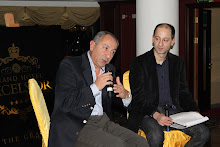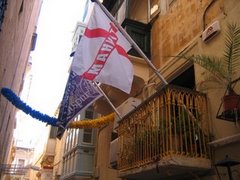Luka Modric trots past the training pitch at Spurs Lodge with the air of a man who believes he belongs. His studs casually click-clack along the path. He knows his way around the place, nods to friendly faces, feels comfortable with his game. But it was not always thus.
Rewinding to the beginning of his English adventure, Modric recalls the bewilderment he felt as a new face, a signature signing, in a team that began falling to bits the moment the season kicked off. Tottenham failed to win a league game for the first two months. Mistakes ruled. Morale evaporated. The club – sold to him as a slice of the big time – instead felt crushed with worries.
Modric wondered whether he had made a poor choice in joining this troubled corner of the Premier League. During his final season at Dinamo Zagreb there had been abundant transfer speculation about Barcelona and Chelsea, but Tottenham's persistence, and willingness to spend £16.5m, had won the day. "It was very difficult for me because I didn't expect such a start," he admits. Difficult enough to feel like a mistake? "Soon I had that impression. I was thinking what could I do to improve things, and whether I might be partly to blame."
His waif's physique might suggest otherwise, but in character Modric is deceptively steely. Despite understandable doubts, he hung in there until the storm abated. "In spite of that start I never doubted myself, or that the results would change. Now we can see that it's better, and there is no more pressure. Of course it's much easier since we didn't have to think about relegation."
Tottenham are thinking in a much more positive direction. They are in the shake-up for the remaining Europa Cup slot for next season along with Fulham, West Ham and today's opponents at White Hart Lane, Manchester City. It might look like the clumsiest European competition ever created and prove to be a headache in disguise for managers, but players want to be in Europe. Modric is no exception.
The international stage makes him tick. It is when he talks about his experiences with Croatia that his personality, his passion, breaks out of its shell. His landmark appearance in the red-and-white-chequered shirt occurred in 2007 just a few miles round the North Circular at Wembley. As Croatia beat England, celebrated an historic double and secured their qualification to Euro 2008, it was clear that Modric had the ability to shine outside of his home nation on the biggest of stages.
"That was the game," Modric smiles. "Beforehand the important thing was [the coach] Slaven Bilic came to me and said, 'Luka, you have played so many good games you don't need to prove yourself to anybody today. Just be yourself. Don't feel under pressure and things will turn out the right way.' That's what happened."
The atmosphere in the away dressing room that night has stuck in his mind ever since. "Fenomenalno," he breezes. "It was a great feeling. Playing for Croatia means everything. It's completely different to playing for a club. So much more emotions. Because of all the bad things that were happening in the war we really, really appreciate playing for Croatia and we cannot wait to play another match."
Come the end of the season, Modric will rejoin his compatriots in trying to improve a World Cup qualification campaign that has turned upside down the fortunes. Now it is England who have the upper hand, while Croatia have it all to do.
Naturally, when Fabio Capello's team came away from Zagreb with a devastating 4–1 victory last September it was not so fenomenalno. You can imagine how challenging a time it was for Modric, coming as it did in the midst of Tottenham's blue period.
Modric sums up the transformation in England using only one word: Capello. "The players are more or less the same but the difference is the coach, who gave them the confidence they were missing. He is one of the best in the world who can achieve a lot.
"To be honest, we haven't started the campaign well and England have a big advantage at the moment. The most important game is the next one, in June against Ukraine, who are our main rival for second place. But we are still not giving up the possibility of being first. If we win every game and England have a bad result somewhere, it can happen."
Modric looks forward constantly. It is his reaction to a childhood scarred by the Balkan conflict of the 90s, which came with great personal loss when his grandfather was killed. It is something he is loth to rake over any more. "You can't forget, but you need to look to the future."
Football offered some normality for a boy who pinned posters of his idol, Zvonimir Boban, on his walls, and Modric practised as often as possible. "My parents still took me to training sessions, I played in the schoolyard and also in front of the house where we lived. So no problems," he says. Moving from the seaside at Zadar, where he had grown up, to the capital to join Dinamo Zagreb was a culture shock. But that was nothing compared to his next move, on loan to Zrinjski Mostar in Bosnia. It was a none too subtle manoeuvre by Dinamo designed to toughen the kid up. Suffice to say he went a boy and returned a man.
Modric grins bashfully. "I was 17. It really helped me because it is a very rough, tough league to play in. You get a lot of hits. The referees let many things go. The country is divided into the Serbian, Muslim and Croatian parts, so if you were a Croatian team going into one of the other parts, there was extra pressure from the fans and referees succumbed to that. Nobody was at liberty to break your leg but the tackles were very rough."
Obviously he would prefer his football to be more about technique than physique, but at the end of a season of adaption at Tottenham, Modric has shown the doubters that he can handle it. Only two outfield players have had more minutes on the pitch than him – Jonathan Woodgate and Vedran Corluka.
Brute strength was always the burning question with Modric, who admits there were times he feared his size would count against his aspirations. Notably, if you stood him side by side next to Lionel Messi, there is no question one is slighter than the other. Harry Redknapp sends Modric to the gym to develop his stamina, but also reckons he is stronger than he looks. "Luka has been brilliant. He is a special player and he's not a lightweight either. He has shown he can mix it with the big boys." Redknapp has said he wants to build his team around Modric. Next season will be a major one for the both of them.
"Overall I have adjusted very well here but I'm missing very much my friends in Croatia," Modric muses. "At the beginning it was strange coming to such a huge, huge city but I like to play here very much and I am settled here."
The next step is to experience some fenomenalno moments with Tottenham. "I think we are in a good position," he says. "It's difficult to predict if it will take a year or two but I don't think we are too far off. I am really looking forward to next season because I don't believe we can possibly have such a bad start again."
Modric was at the Kickz tournament, put on by Tottenham Hotspur Foundation, in partnership with the Football Foundation and the Home Office's It Doesn't Have To Happen anti-knife crime campaign


